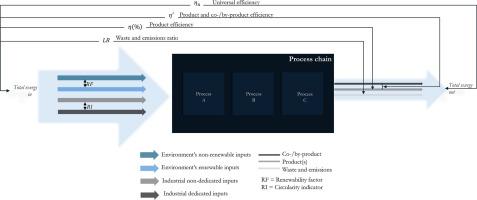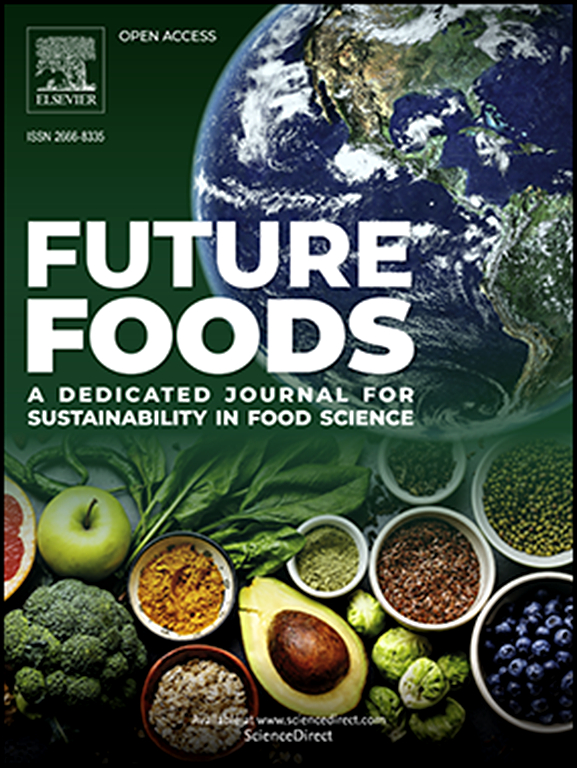资源利用效率:开发蛋白质生产系统通用框架及其在奶制品和鱼类中的应用
IF 7.2
Q1 FOOD SCIENCE & TECHNOLOGY
引用次数: 0
摘要
随着全球对自然资源的需求不断增长,资源利用效率变得越来越重要,这就需要采取创新和可持续的利用战略。尽管有了量化资源利用和环境影响的工具,但对资源利用总效率的综合评估仍然欠缺。为了弥补这一不足,尤其是在蛋白质从动物性来源向植物性来源过渡的背景下,这项工作引入了一个新颖的资源效率框架。该框架可根据综合资源利用指标精确计算蛋白质生产过程和过程链的效率,从而推进当前的环境评估。它独特地纳入了工艺投入的性质,包括其可再生性和循环性,并在工艺和工艺链层面支持前景和生命周期视角。为了证明该方法的适用性,我们使用放能和质量分析对鱼类和乳制品生产系统这两个案例进行了评估。本文章由计算机程序翻译,如有差异,请以英文原文为准。

Resource use efficiency: Developing a generic framework for protein production systems and its application on dairy and fish
Resource use efficiency has become increasingly important as the global demand for natural resources continues to grow, necessitating innovative and sustainable utilization strategies. Despite the availability of tools to quantify resource use and environmental impacts, an integrated assessment of total resource use efficiency remains underdeveloped. Addressing this gap, particularly within the context of the protein transition from animal-based to plant-based sources, this work introduces a novel resource efficiency framework. This framework advances current environmental assessments by enabling the precise calculation of efficiency in protein production processes and process chains based on comprehensive resource utilization metrics. It uniquely incorporates the nature of process inputs, including their renewability and circularity, and supports both foreground and life cycle perspectives at the process and process chain levels. To demonstrate its applicability, two case studies—fish and dairy production systems—are evaluated using exergy and mass analyses.
求助全文
通过发布文献求助,成功后即可免费获取论文全文。
去求助
来源期刊

Future Foods
Agricultural and Biological Sciences-Food Science
CiteScore
8.60
自引率
0.00%
发文量
97
审稿时长
15 weeks
期刊介绍:
Future Foods is a specialized journal that is dedicated to tackling the challenges posed by climate change and the need for sustainability in the realm of food production. The journal recognizes the imperative to transform current food manufacturing and consumption practices to meet the dietary needs of a burgeoning global population while simultaneously curbing environmental degradation.
The mission of Future Foods is to disseminate research that aligns with the goal of fostering the development of innovative technologies and alternative food sources to establish more sustainable food systems. The journal is committed to publishing high-quality, peer-reviewed articles that contribute to the advancement of sustainable food practices.
Abstracting and indexing:
Scopus
Directory of Open Access Journals (DOAJ)
Emerging Sources Citation Index (ESCI)
SCImago Journal Rank (SJR)
SNIP
 求助内容:
求助内容: 应助结果提醒方式:
应助结果提醒方式:


